

Get in the KNOW
on LA Startups & Tech
XTikTok Videos Will Get 'Content Levels', Sort Of Like 'R' Rated Movies
Christian Hetrick
Christian Hetrick is dot.LA's Entertainment Tech Reporter. He was formerly a business reporter for the Philadelphia Inquirer and reported on New Jersey politics for the Observer and the Press of Atlantic City.
Movies, music and video games have long received content ratings to shield kids from mature media. Films featuring sex scenes or gory violence are rated “R,” while albums full of curse words are slapped with the “Parental Advisory” label.
Nothing like that exists in the Wild West of user-generated social media. But TikTok on Wednesday said it is building something similar: a new system to organize content based on thematic maturity. In the coming weeks, the Culver City-based company will roll out an early version, with the goal of preventing “overtly mature themes” from reaching teens. TikTok is calling it “Content Levels.”
“Many people will be familiar with similar systems from their use in the film industry, television, or gaming and we are creating with these in mind while also knowing we need to develop an approach unique to TikTok,” Cormac Keenan, TikTok’s head of Trust and Safety, wrote in a blog post.
The company said it will assign videos a “maturity score” when it detects content that has "mature or complex themes." As an example, TikTok said frightening or “intense” fictional scenes could receive a maturity score.
That will help block people under the age of 18 from viewing those videos, according to TikTok. The firm shared screenshots showing “age protected” posts flagged as “unavailable” to younger users. For now, the social media giant said it is focused on “safeguarding the teen experience,” but it eventually plans to offer more detailed content filtering options for all users.

A screenshot showing an "unavailable" post under TikTok's new Content Levels system.
Image courtesy of TikTok
TikTok’s new Content Levels come as social media platforms face scrutiny over how their apps can be harmful to kids. Federal lawmakers in Washington have grilled tech executives about child safety, while state attorneys general are investigating social media giants over how their design, operations and promotional features could be bad for kids. News reports and lawsuits have said TikTok has fed teens videos depicting eating disorders, dangerous viral “challenges” and other damaging content.
The company has already taken some steps to separate content for teens and adults. TikTok is testing a new setting to let users restrict livestreams to viewers who are 18 and older. The company also updated content rules aimed at combating harmful content, such as preventing viral hoaxes, shielding the LGBTQ community from harassment and removing videos promoting unhealthy eating.
TikTok’s new Content Levels come as social media platforms face scrutiny over how their apps can be harmful to kids. Federal lawmakers in Washington have grilled tech executives about child safety, while state attorneys general are investigating social media giants over how their design, operations and promotional features could be bad for kids. News reports and lawsuits have said TikTok has fed teens videos depicting eating disorders, dangerous viral “challenges” and other damaging content.
The company has already taken some steps to separate content for teens and adults. TikTok is testing a new setting to let users restrict livestreams to viewers who are 18 and older. The company also updated content rules aimed at combating harmful content, such as preventing viral hoaxes, shielding the LGBTQ community from harassment and removing videos promoting unhealthy eating.
In addition to the forthcoming maturity scores, TikTok announced Wednesday that it is rolling out a tool for people to filter out videos with words or hashtags they don't want to see in their feeds. The company said it has also worked to avoid flooding users with similar videos on topics that could be problematic when seen repeatedly, such as dieting, sadness and other well-being issues.
A TikTok spokesperson did not detail what the company’s guidelines for maturity scores will look like, such as whether videos containing violence or profanity will be automatically age-restricted, for example. TikTok users won’t be able to appeal their videos’ maturity scores in the first version of Content Levels, the spokesperson added. That could upset some creators since such restrictions would presumably limit their virality. The TikTok spokesperson said the firm will listen to feedback over the coming months before making adjustments.
But the biggest question of all may be how effective Content Levels will actually be at shielding kids from mature content. Despite the best efforts of parents, plenty of kids still find a way to watch “R” rated movies and play “M” rated video games. Teens will likely try to do the same on TikTok.
From Your Site Articles
- TikTok 'Blackout Challenge' is the Focus of a New Lawsuit - dot.LA ›
- TikTok Restricts Who Can View Sexually Explicit Content - dot.LA ›
Related Articles Around the Web
Christian Hetrick
Christian Hetrick is dot.LA's Entertainment Tech Reporter. He was formerly a business reporter for the Philadelphia Inquirer and reported on New Jersey politics for the Observer and the Press of Atlantic City.
These Are LA's Top Venture Capitalists of 2022, According to Their Fellow VCs
06:00 AM | February 28, 2022
Sign up for dot.LA’s daily newsletter for the latest news on Southern California’s tech, startup and venture capital scene.
On the heels of a record-setting year for Southern California’s startup environment, we asked more than 30 leading Los Angeles-based investors for their take on the city’s top venture capitalists. (Specifically, we prompted: “Which L.A.-based VCs impress you the most?”) They responded with the names of 45 peers that they admire—14 of whom made the following list by receiving two or more votes.
The results offer an insider’s view of the L.A.’s startup scene in 2022—which, even as it rapidly expands, remains an insular world led by a handful of key dealmakers, like the venture capital industry at large. This year, TenOneTen partner Minnie Ingersoll and Bonfire Ventures managing director Mark Mullen tied for the top spot, with five votes apiece; they were followed by Wonder Ventures managing partner Dustin Rosen, who received four votes. Behind them, five VCs tied for third place with three votes each, while another six investors round up the list with two votes apiece.
Like last year’s list (which also featured Bonfire’s Mullen in the top spot), the below results are sorted by the number of votes each VC received; where there were ties, we list the investors alphabetically by their last names. As always, we asked survey participants not to vote for any of their colleagues—and vetted the list to ensure they stuck to that rule.
Without further ado ado, here are LA’s top VCs of 2022, as judged by their peers.

Minnie Ingersoll, TenOneTen Ventures
Minnie Ingersoll, TenOneTen Ventures (5 Votes)
Minnie Ingersoll is a partner at early-stage venture firm TenOneTen, whose recent investments include crypto travel rewards startup FlyCoin. Prior to TenOneTen, she co-founded Shift Technologies, an online marketplace for buying and selling used cars. Ingersoll also spent more than a decade at Google, where she focused on the tech giant’s fiber optic, advertising and charitable efforts. (She also hosts dot.LA’s LA Venture podcast.)

Mark Mullen, Bonfire Ventures
Mark Mullen, Bonfire Ventures (5 Votes)
Mark Mullen is co-founder and managing director of Bonfire Ventures, an early-stage venture firm that backs business-to-business (B2B) software startups. (Recent investments include cloud communications startup Telgorithm.) Mullen previously managed venture funds Double M Partners and Mull Capital. In January, an SEC filing revealed that Bonfire aimed to raise $165 million for its third fund. (Disclosure: Mullen is an investor in dot.LA.)
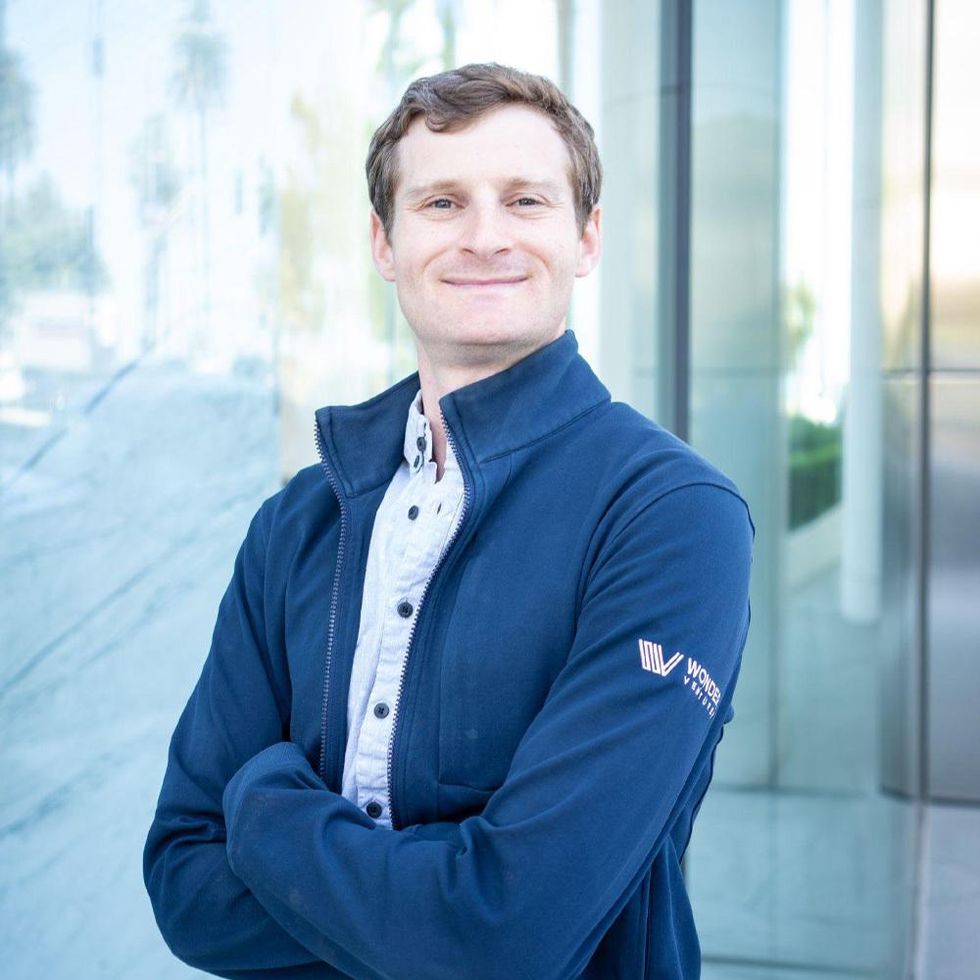
Dustin Rosen, Wonder Ventures
Dustin Rosen, Wonder Ventures (4 Votes)
Dustin Rosen is the founder and managing partner of Wonder Ventures, an early stage investor in companies including L.A.-based unicorns Whatnot and Bird. Earlier in his career, Rosen founded the fashion app Pose and was a senior associate at the Mail Room Fund. Last month, Wonder launched a $31 million fund focused exclusively on early-stage L.A. startups.

Jim Andelman, Bonfire Ventures
Jim Andelman, Bonfire Ventures (3 Votes)
Alongside Mark Mullen, Jim Andelman is a co-founder and managing director at Bonfire Ventures, an early-stage venture firm focused on B2B software startups. Previously, he oversaw software deals for Bay Area investment firm Broadview Capital Partners.

Anna Barber, M13
Anna Barber, M13 (3 Votes)
Anna Barber is a partner at M13, a venture firm focused on early-stage consumer tech companies. (Recent investments include NFT startup Unblocked.) Barber is also an advisor to the USC Marshall Venture Fund. She previously led Techstars LA as its managing director and co-founded Scribble Press, a New York-based book publishing startup. (Disclosure: M13 is an investor in dot.LA.)

Eva Ho, Fika Ventures
Eva Ho, Fika Ventures (3 Votes)
Eva Ho is a general partner at Fika Ventures, a seed-stage firm that focuses on sectors including AI, automation and big data. Ho formerly worked at Google and served as entrepreneur-in-residence for the city of Los Angeles.

Jeff Morris, Chapter One
Jeff Morris, Chapter One (3 Votes)
Jeff Morris is the founder and managing partner of Chapter One, a venture firm targeting early-stage web3 startups. The former Tinder executive’s previous investments include Dapper Labs, Lyft, Cameo and PearPop.
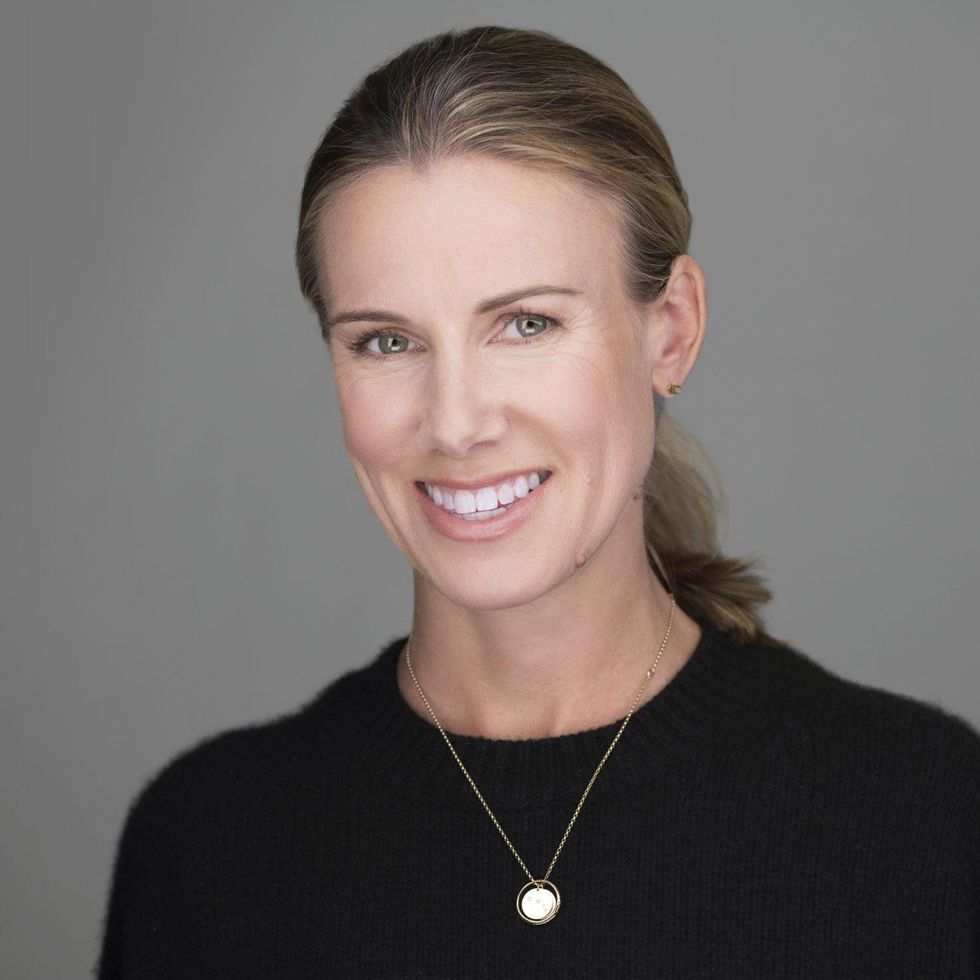
Dana Settle, Greycroft
Dana Settle, Greycroft (3 Votes)
Dana Settle is a co-founder and managing partner at Greycroft, which has backed consumer-focused startups including Acorns, Goop and Bumble. The Lehman Brothers alum helped Greycroft close two funds worth nearly $700 million combined in late 2020. (Disclosure: Greycroft is an investor in dot.LA.)
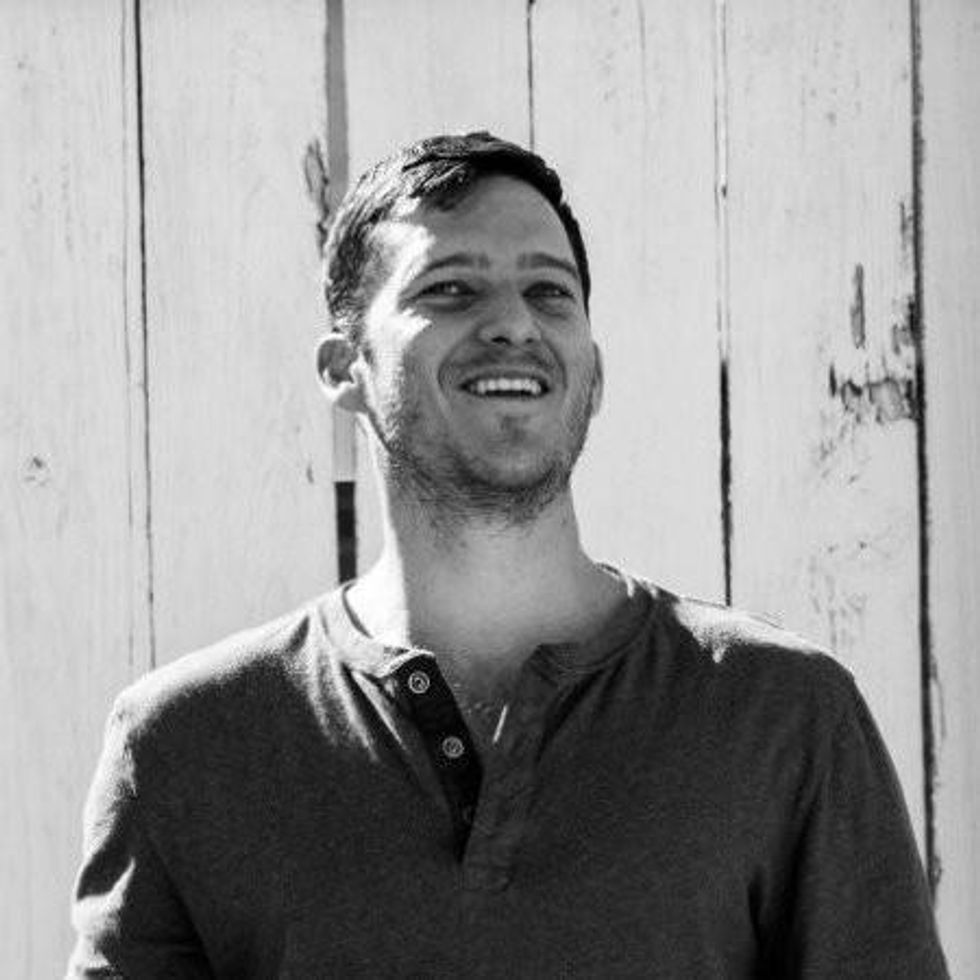
Josh Diamond, Walkabout Ventures
Josh Diamond, Walkabout Ventures (2 Votes)
Josh Diamond is a general partner at Walkabout Ventures, a seed-stage venture firm that primarily targets fintech startups. Diamond previously served as a principal investor at Clocktower Technology Ventures.

Buck Jordan, Wavemaker Labs
Buck Jordan, Wavemaker Labs (2 Votes)
Buck Jordan is the founder and CEO of Wavemaker Labs, which funds and incubates startups in partnership with larger corporations. Wavemaker has especially targeted the food industry supply chain space—backing automated technologies at both the agricultural and food preparation stages that deploy AI and robotics.

Kara Nortman, Upfront Ventures
Kara Nortman, Upfront Ventures (2 Votes)
Kara Nortman is a managing partner at Upfront Ventures. An alum of IAC, Battery Ventures and Microsoft, Nortman previously co-founded children’s ecommerce startup Moonfrye and also helped launch women’s professional soccer club Angel City FC. Upfront raised $177 million for a new fund in January; local portfolio companies include GOAT, Creator Now and Endgame. (Disclosure: Upfront Ventures is an investor in dot.LA.)

Spencer Rascoff, 75 & Sunny
Spencer Rascoff, 75 & Sunny (2 Votes)
Spencer Rascoff is a co-founder and general partner at 75 & Sunny, a venture firm and startup incubator. Focused on sectors including proptech and ecommerce, Rascoff previously co-founded Zillow, Hotwire.com and real estate platform Pacaso (Disclosure: Rascoff is the co-founder and executive chairman of dot.LA.)
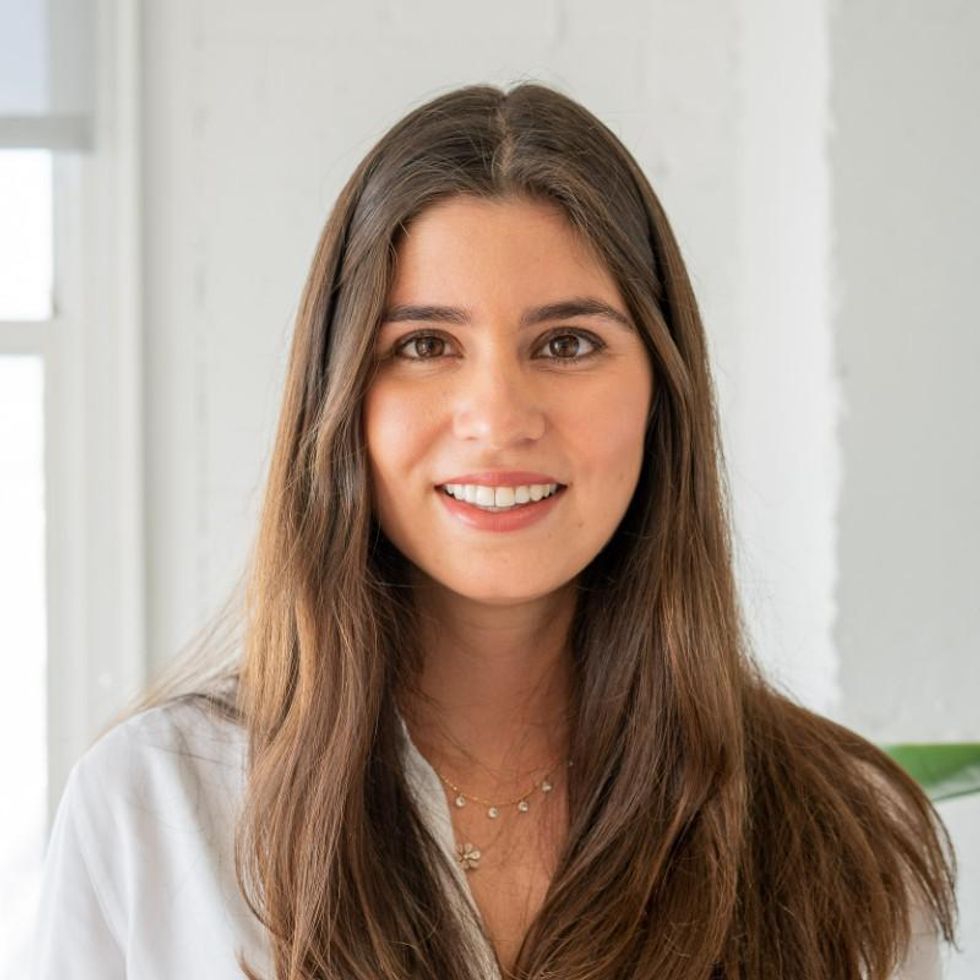
Adriana Saman, Clocktower Technology Ventures
Adriana Saman, Clocktower Technology Ventures (2 Votes)
Adriana Saman is a principal at Clocktower Technology Ventures, a venture firm investing in early-stage fintech startups across the U.S., Europe and Latin America. Saman was previously an analyst at JPMorgan Chase.
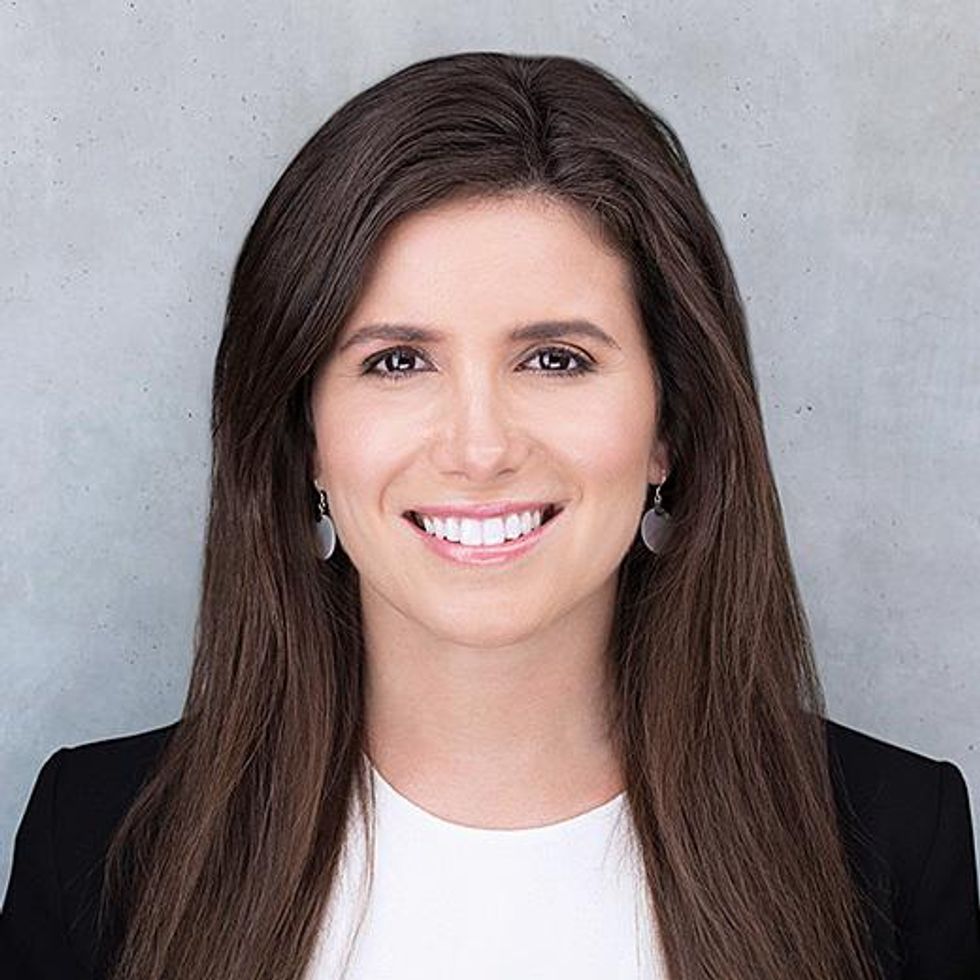
Sara Zayani, Global Founders Capital
Sara Zayani, Global Founders Capital (2 Votes)
Sarra Zayani is a partner at Global Founders Capital. The Greycroft alum has led Global Founders’ investments in local startups including Cann, Universal Hydrogen and Pacaso.
From Your Site Articles
- Los Angeles Startups Closed a Record Number of Deals in Q3 - dot.LA ›
- VCs See Valuations Reach Record Highs as Optimism Stays High ... ›
- Here Are Los Angeles' Top Venture Capitalists - dot.LA ›
- Venture Deals in LA Are Slowing Down - dot.LA ›
- Bonfire Ventures Raises $230M Across Two New VC Funds - dot.LA ›
- Struck Studio Launches $15M Fund to Create In-House Startups - dot.LA ›
- Struck Capital Launches $15M Fund to Create In-House Startups - dot.LA ›
- L’Attitude Ventures Closes $100M Fund Aimed At U.S.-based Latino Founders - dot.LA ›
- L’Attitude Ventures Closes $100M Fund Aimed At U.S.-based Latino Founders - dot.LA ›
- PitchBook Reports Fewer Tech Investments - dot.LA ›
- Here Are The Top Venture Capitalists In 2023 - dot.LA ›
- Telesair Picks Up $22M, Kingswood Capital Lands $620M - dot.LA ›
- Pagos Secures $34M, Champions Round Picks Up $7M - dot.LA ›
Related Articles Around the Web
Read moreShow less
los angeles tech sceneventure capitalminnie ingersollmark mullendustin rosenjim andelmananna barbereva hojeff morrisdana settlejosh diamondbuck jordankara nortmanSpencer Rascoffadriana samansara zayanivc sentiment survey
Harri Weber
Harri is dot.LA's senior finance reporter. She previously worked for Gizmodo, Fast Company, VentureBeat and Flipboard. Find her on Twitter and send tips on L.A. startups and venture capital to harrison@dot.la.
LA Tech Week 2025: Wednesday’s Event Lineup
03:30 PM | October 13, 2025
Here's the Wednesday, October 15th lineup for LA Tech Week 2025, organized by location so you can easily explore events that fit your goals and schedule. Dive in and see what’s happening near you!
ARTS DISTRICT
5:00 PM – 7:30 PM
- Heat & Haze: LA’s Dual Climate Emergency: See Details Here
ThermoShade, AirVitalize, JPMorgan
BEL AIR
7:00 PM
- YPO Private Event: See Details Here
MAGIC Fund
BEVERLY HILLS
11:00 AM – 2:00 PM
- Rejuvenation Mansion: See Details Here
Rejuvenation Summit, iceless.la, Roam & Reset
11:00 AM
- Series A founders +Investors@ Private Club Hollywood, featuring Arthur Spivak: See Details Here
Atlas Cloud AI, Amino Capital, Wilson Sonsini
2:00 PM
- LAVA Bio/Global LAVA Korea LA TechWeek Showcase: *Invite Only*
LAVA
3:30 PM
- The Future of Creation: XR × AI × Web3: See Details Here
NLINK.AI, Jen House
5:30 PM
- VC American Idol: See Details Here
Ultimate AI
5:30 PM
- What's Next in Comms –Happy Hour by PeakMetrics & Stakeholder Labs: See Details Here
PeakMetrics
6:00 PM – 8:30 PM
- BAD BITCH EMPIRE: Unapologetic Wealth: See Details Here
Bad Bitch Empire, Women in AI
6:30 PM
- LIGHT DAO SALON: Investor Fireside Chat with: Saurabh Suri, CerraCap Ventures: See Details Here
Light Dao, EVOLVING POTENTIAL
BRENTWOOD
11:15 AM
- Longevity: Investable Science: See Details Here
Monarch Athletic Club, The Reason Longevity AI Intelligence
CENTURY CITY
10:00 AM – 12:00 PM
- Future of Search: AI SEO Panel: See Details Here
Mucker Capital
10:00 AM – 2:00 PM
- VCPE: LA TECH WEEK Panel & Pitch 2025: See Details Here
VCPE GROUPS, ECVC ACCELERATOR, Sente Ventures
11:00 AM – 1:30 PM
- Investing in Music’s Future Through Advocacy & Innovation: See Details Here
Solid Gold Global, BMO
12:00 PM – 2:00 PM
- AI Search with Dual Web Presentation: See Details Here
Mucker Capital
2:30 PM – 5:30 PM
- VCPE & FAMILY OFFICES Happy Hour: See Details Here
VCPE GROUPS, LiveToGive, AutoParts.com
4:00 PM – 7:00 PM
- a16z Speedrun x Litquidity Ventures: Investor Padel Mixer: See Details Here
Litquidity Ventures, a16z speedrun
5:30 PM
- Built Smarter: Tech Shaping Housing: See Details Here
YIMBY Los Angeles, Venable LLP
6:30 PM
- VCPE & FAMILY OFFICES DINNER: See Details Here
Sente Ventures, VCPE Groups
CULVER CITY
8:00 AM – 6:00 PM
- Coworking @ Intersections LA: See Details Here
Intersections LA, NodeCRM
4:00 PM – 8:00 PM
- The Future of High Performance: Longevity, Recovery, and Resilience in Tech: See Details Here
ConciergeMD
4:30 PM – 7:30 PM
- OpenDrives' Astraeus Product Launch Celebration: Bringing the Cloud Back Down to Earth: See Details Here
OpenDrives
5:00 PM – 8:00 PM
- Techstars Aerospace & Defense Happy Hour w/ US Space Force and NASA JPL: See Details Here
Techstars Space, Wilson Sonsini, Leonid Capital Partners
5:00 PM
- Ir(ish) in Tech happy hour: See Details Here
Enterprise Ireland
5:00 PM
- Beyond the Hype: AI, Creativity, Reinvention: See Details Here
Wtech
5:30 PM – 8:00 PM
- Deeptech After Dark: See Details Here
Curbivore, AVL
6:30 PM
- Adaptive Security Executive Dinner at Juliet: See Details Here
Adaptive Security
DTLA
9:00 AM
- Future of Connectivity, Automation Impacting Companies, Retailers, and Family Offices: See Details Here
Inspire Global Ventures, Digital Evolution Institute
10:00 AM
- Fintech CFO Office Hours: See Details Here
Scalepoint Advisors
6:00 PM
- Startup Bootcamp: From Idea to Impact: See Details Here
Catalyst Noir
ECHO PARK
5:00 PM – 7:00 PM
- East Side Tech Meetup: See Details Here
Beginners, Gratitude Railroad
5:00 PM – 8:00 PM
- Future of Fashion & Technology: See Details Here
Tote, Beni, Offe Market
EL SEGUNDO
10:30 AM – 12:00 PM
- Tools that Fuel the Creator Economy: See Details Here
Belkin
1:00 PM
- XR, Robotics & AI in Film Panels: *Invite Only*
Undercurrent XR Studios
5:00 PM
- Black Flag National Security Happy Hour: See Details Here
Shield Capital, Harpoon Ventures, In-Q-Tel
5:30 PM
- First & Third | A HardTech Happy Hour: See Details Here
Third Prime, AWS, First Resonance
5:30 PM – 8:00 PM
- Stress Tested: Defense Tech Meeting Reality: See Details Here
Starburst, Picogrid
5:30 PM – 8:30 PM
- Founders, Funders, & Forever Companies: A Mid-Week Mixer: See Details Here
Trousdale Ventures
6:00 PM
- Women in Data: *Invite Only*
Sigma Computing, Prodege, Snowflake
7:00 PM
- AI for building rockets and robots: CAD Reimiagined: See Details Here
Hestus, Artifact, Rock Yard Ventures
HOLLYWOOD
11:00 AM – 1:30 PM
- Imagination x Innovation: Tech's Role in the Future of Entertainment: See Details Here
a16z speedrun, Comcast
12:00 PM
- AI Agents Live + Labs: See Details Here
Google Cloud
3:00 PM – 6:00 PM
- Happy Hour & Panel with Crunchyroll, Vuori and Transcarent: See Details Here
Mixpanel
4:00 PM – 6:00 PM
- ASK A COMMUNITY PRO HAPPY HOUR: A LA TECH WEEK EVENT: See Details Here
Gainsight
5:00 PM – 8:00 PM
- Legendary Ventures (Venture Hour) (W/VCA): See Details Here
Legendary Ventures
5:00 PM – 8:30 PM
- AI Cheat Codes to Play Bigger w/Less: See Details Here
Legendary Ventures
5:30 PM
- Edelman & Tech: LA Gaming Creators As Collaborators: See Details Here
Edelman
6:00 PM – 9:00 PM
- AI, Learning and Creative Futures: See Details Here
ASU Herberger Institute of Design and The Arts, FYI Campus (Will.i.am)
KOREATOWN
6:00 PM – 8:00 PM
- Low Rank Adapters: ComfyUI session: See Details Here
daisy
MALIBU
12:00 PM
- AI-Driven Consumer Products: See Details Here
AcceleratorCON, Shopline
7:00 PM – 9:00 PM
- Consumer Investor Dinner: See Details Here
VAIN, No Pressure Networking
MAR VISTA
5:00 PM – 7:00 PM
- The Longevity Advantage: How Top Founders Use Performance Medicine To Outlast: See Details Here
Pooja Gidwani MD, Inc.
MARINA DEL REY
8:00 AM
- Primal Moves + Tech Breakfast | Ascendancy: See Details Here
Ascendancy
10:00 AM – 3:00 PM
- Creatives and Founders Offsite Workday: See Details Here
Sawubona
11:00 AM – 2:00 PM
- Digital Civics @ USC & Beyond: Positive AI: See Details Here
USC
11:00 AM
- Startup Groundworks by JPMorgan: *Invite Only*
JPMorgan
2:30 PM - 4:30 PM
- Inside the Minds Bending Our Reality: See Details Here
USC Information Sciences Institute, Stifel Venture Banking
4:00 PM
- The Arc of Finance Leadership with a16z: See Details Here
a16z
5:00 PM - 7:30 PM
- 1AM Gaming Presents: Exclusive Investor Happy Hour: See Details Here
1AM Gaming
5:00 PM - 7:00 PM
- Elevated Spirits: SA&M Tech Week Exclusive Mixer: See Details Here
Stubbs Alderton & Markiles, LLP
6:00 PM - 9:00 PM
- Creatives & Founders Happy Hour: See Details Here
Sawubona
PASADENA
8:00 AM
- Hacking Human Happiness: See Details Here
Innovate Pasadena, Art Center College of Design, City of Pasadena
PLAYA VISTA
6:00 PM – 8:30 PM
- Smart to Intelligent: AI and the Connected Home: See Details Here
IRVINEi, Loyola Marymount University
SANTA MONICA
12:19 AM
- The Future of Robotics & Self-Driving Cars: Building Innovation: *Invite Only*
TECHBUXIN
6:30 AM
- Dawn Patrol Surf Meet Up: See Details Here
Next Wave Marketing
8:00 AM
- Founder Flow: Morning Yoga w/ Cake Equity: See Details Here
Cake Equity, Cooley LLP
8:00 AM
- Dawn Patrol - Coffee, Companies, & Capital: See Details Here
Adamant
8:30 AM
- Early-Stage B2B Tech Founders & Funders Breakfast: See Details Here
Forum Ventures, Zendesk, Cooley
8:30 AM – 10:30 AM
- AI for Housing: Tech to End the Crisis: See Details Her
TurboPermit
9:00 AM – 10:30 AM
- MachineTrader in Action: Low-Code Infrastructure for Serious Traders.: See Details Here
MachineTrader.io, Alpaca Markets
9:00 AM – 10:30 AM
- M13 + Everywhere Ventures Breakfast: See Details Here
M13, Everywhere Ventures
9:00 AM
- Penthouse Investor Breakfast with Vulcury Venture Studio: See Details Here
Vulcury Venture Studio
9:30 AM - 12:00 PM
- The Predictive CFO: Finance Leadership in the Age of AI: See Details Here
Elements
9:30 AM - 10:30 AM
- Neuroscience of Audience Attention, CMOs Breakfast: See Details Here
North AI
9:00 AM – 11:00 AM
- Consumer Tech Panel: See Details Here
VAIN, SPANVentures
10:00 AM – 11:00 AM
- The Future of FitTech: How AI is Reshaping Fitness: See Details Here
VSPYR, Fred Fitness
10:00 AM – 12:00 AM
- SoCal Black Tech Express Pitch Competition: See Details Here
Musa Capital, Consulate General of Canada in Los Angeles, Daraja Collective
10:00 AM
- Hyrox & InStudio Ventures Present: Sweat & Network at Fitstop: Invite Only
InStudio Ventures, HYROX, Fitstop
10:00 AM
- GenAI Film Brunch (LA): See Details Here
C47 Inc.
10:30 AM - 12:00 PM
- The Marketing Trap & How To Escape: See Details Here
Playbook Media, GrowTal Inc
11:00 AM - 12:30 PM
- Hands-On with the Alpaca MCP Server: Natural Language Trading: See Details Here
MachineTrader.io, Alpaca Markets
11:00 AM - 6:00 PM
- The Best of Live @ LA TechWeek: See Details Here
Agora
12:00 PM
- Safeguarding the essence of family in an AI-Driven Future: See Details Here
Trove, MindfulBytes
12:00 PM
- Investor 360: VC Fireside Chat
Stubbs Alderton & Markiles Preccelerator
12:00 PM
- LA Game + Entertainment Tech Founders Luncheon: See Details Here
Webb Summit
12:00 PM - 1:00 PM
- The VC Pitch: See Details Here
Agora
1:00 PM
- #LATechWeek Unlock Your Investor Potential: See Details Here
Musa Capital
1:00 PM
- LA-Tech CEO Summit: Invite Only
LA-Tech.org
1:00 PM
- The Founder’s Fight Club: See Details Here
Braav Security, Santa Monica Striking
1:00 PM - 2:00 PM
- Breaking language barriers with Palabra.ai: See Details Here
Agora, Palabra
2:00 PM
- AI Future of HR Work Gathering: See Details Here
Respiris Inc
2:00 PM
- AI in the Creator Stack: See Details Here
Dots
2:00 PM - 3:30 PM
- Connect & Match: Tech Talent & Hiring Managers Navigate the Messy Middle: See Details Here
Product Advisory Collective (PAC), Product Hiring House
2:30 PM - 4:00 PM
- Beachside Female Founder Crawl: See Details Here
Anne Taylor Communications, LLC., With Mari
2:30 PM
- South Asians in Entertainment: See Details Here
American South Asian Network
3:00 PM
- AI in Africa Panel - Landscape, Opportunities, & Challenges
Exo AI
3:00 PM - 4:00 PM
- LiveAvatar for Modern Businesses: See Details Here
Agora, HeyGen
3:00 PM - 5:00 PM
- GovTech Bourbon and Biscuits: See Details Here
ZenGov
3:00 PM - 5:30 PM
- Climate Connect: Pickle Edition - Blue Bear + JPM: See Details Here
BlueBear Capital, J.P. Morgan
3:00 PM - 6:00 PM
- Talking with your data: ‘AI for BI’ happy hour: See Details Here
Google Cloud, Looker
3:00 PM - 6:00 PM
- The Future of Social Commerce: See Details Here
Outlandish, TikTok, The Dodo Group, FHI Heat, Wyze, Back in the Box
3:00 PM
- IPO Summit - City of Dreams Edition: See Details Here
Sidebar Summit
4:00 PM
- Indian Founders: See Details Here
Inkle.io
4:00 PM
- TORQ Sports - Athlete Pane: See Details Here
TORQ Sports
4:00 PM – 5:30 PM
- Startups, Investors & Women Leaders: See Details Here
Product Advisory Collective (PAC), Capacity Capital
4:00 PM – 7:00 PM
- The Future of Creator Content Markets: See Details Here
Winston Francois, Founder Mode
4:00 PM – 7:00 PM
- Shaping Stories: Journalism, PR, Tech in a New Era: See Details Here
Fr8qu8ncy, All In One Entertainment
4:00 PM – 7:00 PM
- Community Led Launches: A Fireside Chat w/ Lavinia Errico (Equinox) & Actress Meagan Good: See Details Here
CRWD
4:00 PM – 8:00 PM
- The Golden Hour powered by Better Flip: See Details Here
Better Flip
4:30 PM – 6:30 PM
- Vision to Velocity: Public Funding Pathways for DeepTech Founders: See Details Here
Origin Ventures, Embark
4:30 PM – 7:00 PM
- The Future of Mobility UX, a salon hosted by CoMotion & BMW Designworks: See Details Here
CoMotion, BMW Designworks
5:00 PM
- Signals & Capital - Where SaaS Is Heading & Who's Funding It: See Details Here
Efficient Capital Labs, BDev Ventures, Mercury
5:00 PM
- Personal Branding for founders & creators: See Details Here
Girls Club, Oui We Studio, The Escapism Retreat
5:00 PM
- Sunset Wine Tasting: See Details Here
SVB, Turbine, Kaufman Fellows
5:00 PM
- Sequoia Leader Connect: See Details Here
Sequoia
5:00 PM
- Biz@Sunset Mixer: *Invite Only*
Santa Monica Chamber of Commerce, Shore Hote
5:00 PM
- Neurodivergent Founders & Funders: A happy hour: See Details Here
Shimmer, Neurode
5:00 PM
- Innovation in Sports, Media & Entertainment with OneTeam and Waverley Capital: See Details Here
One Team Partners, Waverley Capital
5:00 PM
- Coffee & Chill: Gamers Unite at the Energy Station with Blockus: *Invite Only*
Blockus
5:00 PM
- Fashion Tech Mixer: See Details Here
Serena Wang
5:00 PM – 7:00 PM
- The Next Orbit: Deep Tech & Beyond: See Details Here
Fenwick, Generation Space, Upfront Ventures
5:00 PM – 7:00 PM
- CPG Happy Hour- XRC Brand Builder Grant Closing Event: See Details Here
XRC Ventures, SHOPLINE, Manatt
5:00 PM – 7:00 PM
- Sips & Scale: Growth-Stage AI HH: See Details Here
March Capital, BMO
5:00 PM – 7:00 PM
- MELT』150+Founders x Investors Dynamic Network: See Details Here
MELT
5:00 PM – 7:00 PM
- The After-Hours Exchange: AI & Innovation Mixer: See Details Here
Law Offices of Shan Potts
5:00 PM – 7:30 PM
- AI Builders x Reddit Games Hackathon: See Details Here
Reddit
5:00 PM – 8:00 PM
- Experience the Future of AI Filmmaking: See Details Here
Neu Wave AI Films, cinemarket AI
5:00 PM – 8:00 PM
- Life After Perforce: Next-Gen Version Control for Game Dev & Virtual Production: See Details Here
Diversion
5:00 PM – 8:00 PM
- Smart Brand Solutions: Tech Innovations 2025-2030: See Details Here
Portal Media Center, Xavvi
5:00 PM – 8:00 PM
- Women in Tech (Sales, MKTG, & PR): See Details Here
Kat Rucker Consulting Group, JTS - Joiful Talent Solutions
5:00 PM – 10:00 PM
- AI FILMAKING: HOLLYWOOD'S NEW ALGORITHM: See Details Here
Syndicate AI, Hollo AI, Hustle Fund
5:30 PM
- Brown Girls Breaking Barriers: See Details Here
American South Asian Network
5:30 PM
- From Exec to investor: making the leap from running companies: *Invite Only*
a16z speedrun
5:30 PM – 7:30 PM
- The Future Of AI-Powered Marketplaces: See Details Here
Everything Marketplaces
6:00 PM
- Games fireside chat and dinner with ElevenLabs: *Invite Only*
ElevenLabs
6:00 PM
- Breaking Barriers: Leveraging Biotech for Upward Mobility: See Details Here
Biotech Connection Los Angeles, LA BioSpace
6:00 PM
- Pre-Seed & Seed AI Founder Exclusive Dinner: See Details Here
Untapped Ventures
6:00 PM
- The Tech + Media Mixer With Fr8qu8ncy: See Details Here
Fr8qu8ncy, The Omniverse City, All In One Entertainment, Trend
6:00 PM – 8:00 PM
- Youth Mental Well-Being and AI Panel/Mixer: See Details Here
Headstream, iOpening Enterprises, Innovation Hub at Georgetown's Thrive Center, SidePorch
6:00 PM – 8:00 PM
- The Next Level: The Unfair Advantages of Building with a Venture Studio: See Details Here
Expa
6:00 PM – 8:00 PM
- The Agent Era : Get Your Own AI Career Agent: See Details Here
HeyNavii.ai, hawkemedia
6:00 PM – 8:30 PM
- J.P. Morgan Presents: State of the Software Market ft. Alumni Ventures, Invoca, and K1: See Details Here
J.P. Morgan, K1 Investment Management, Alumni Ventures, Invoca
6:00 PM – 8:30 PM
- Forging The Future: A Discussion With Founders Building the Future of A&D: See Details Here
Venturing Through Venture
6:00 PM – 9:00 PM
- Health Tech Exec Happy Hour by Rounds Health, MEDU, and Objective: See Details Here
Rounds Health
6:00 PM – 9:00 PM
- Artificially Unintelligent Tech Comedy Show + Open Bar, with Vanta, Fondo & Axle Health: See Details Here
Not So Daily Stand Up Comedy LLC, Vanta, Fondo Inc
6:00 PM – 9:00 PM
- In Good Company: Pitch-A-Founder: See Details Here
The Neon White, Code Tech, Zendevr
6:00 PM – 9:00 PM
- An AI Double Feature: See Details Here
Tool
6:00 PM – 9:00 PM
- Prideverse: See Details Here
Qrypto Queer, Double Standard, Outcare
6:30 PM
- Unpacked: A Midweek Happy Hour for Creative Women in Tech: See Details Here
PRISM Bags
7:00 PM
- Curated Founder Dinner - Top Tech Founders (Apply/Invite-only): See Details Here
KStar Holdings, GeekDoingGood.org
7:00 PM
- The Re-Up: A Tech, Wellness & Art Experience: *Invite Only*
GloFlow Wellness
7:00 PM
- Santa Monica Fireside Dinner for LA TechWeek
VioletX
7:00 PM
- CONSUMER FOUNDER DINNER: See Details Here
Helium
7:00 PM
- Tech & Tonic - Learn & Social | Includes 1 Drink: See Details Here
Los Angeles Fun Events
7:00 PM – 9:00 PM
- XRC Founder & Investor Dinner - XRC x SHOPLINE Brand Builder Grant: See Details Here
XRC Ventures, SHOPLINE, Manatt
7:00 PM – 10:00 PM
- Tech Week: AI & Tech Networking in Los Angeles: See Details Here
StartupValley
7:30 PM
- Emerging Technology: See Details Here
Lawrence Harvey - Emerging Tech Specialists, Lawrence Harvey
8:00 PM
- What's Next: An Evening with Expa: *Invite Only*
Expa
UCLA
5:00 PM – 6:00 PM
- Ghosted by Humans, Heard by AI?: See Details Here
The Data Science Union at UCLA, SAY!T Mental Health
VENICE
8:00 AM – 10:00 AM
- LA Tech Week - Women in VC Breakfast: See Details Here
Fulcrum Venture Group, iSquared Capital, Juniper Square
9:00 AM
- The Founder Journey: See Details Here
Simple Closure
9:00 AM - 5:00 PM
- Coworking @ Day One Partners HQ: See Details Here
Day One Partners
10:00 AM – 6:00 PM
- Health & Wellness Tech Innovators Summit: See Details Here
IONAVA
11:00 AM
- The Creator Economy in the Age of AI: See Details Here
Verza
12:00 PM – 3:00 PM
- Frontier House LA: See Details Here
Eleven Wall Ventures, Vatom
12:00 PM – 4:00 PM
- AI in Production GenJam™️: See Details Here
Luma AI
2:00 PM – 7:00 PM
- Bop in: Young Creators at Work: See Details Here
Bopin
3:00 PM – 5:00 PM
- Zero to Unicorn: Beehiiv Fireside: See Details Here
Unicorner
3:00 PM
- Family Office Seed to Scale: *Invite Only*
Family Office Cross Border Alliance
3:00 PM – 6:30 PM
- Google Cloud's CTO Connect - The New AI Creative Era & Happy Hour: See Details Here
Google Cloud
4:00 PM
- From Code to Cognitive: Building AI Agents & Automated Workflows: See Details Here
Ardas
4:00 PM
- Female Founders and Funders Happy Hour: See Details Here
2 to 20, Rhodes Creative Group, TriNet, Orrick
5:00 PM – 8:00 PM
- Founder Friends: See Details Here
Hustle Fund, Rivian, Fidelity Private Shares, Mercer Advisors
5:00 PM – 8:00 PM
- AI, Innovation & Oktoberfest!: See Details Here
NRW.Global Business (North America)
5:30 PM
- Acquisition Ready: Sell Smart, Sell Strong: See Details Here
Digitalundivided
5:30 PM – 8:00 PM
- Founders x Fractionals: The Future of Venture Building - A Build Momentum Launch Party: See Details Here
Build Momentum
6:00 PM
- Early-stage Deeptech Engineering Dinner: See Details Here
Initialized
6:00 PM – 8:00 PM
- Women Leaders Happy Hour: See Details Here
Product Advisory Collective (PAC)
6:00 PM – 9:00 PM
- Eleven Wall Ventures -LP/GP Dinner: See Details Here
Eleven Wall Ventures
7:00 PM
- Consumer Investor Panel: See Details Here
Startup Village, Quantfi
VENICE BEACH
9:00 AM
- Swiss Watch AI: The $7B Opportunity - Morning Coffee and Pastries: See Details Here
ViviScout
7:30 PM – 9:00 PM
- Shopify In-Session Day 2 After Party: See Details Here
Shopify
VIRTUAL (LA)
11:00 AM
- Capital + Growth: The New Model of Company Building: See Details Here
Untapped Ventures
1:00 PM – 2:00 PM
- Hard Truths: Why Hardware Startups Fail Part II: See Details Here
Hardware Velocity
WEST ADAMS
4:00 PM – 7:00 PM
- Breaking Into Cyber: Your Roadmap to a New Career: See Details Here
The Gathering Spot, What If Security, KSCOPE
WEST HOLLYWOOD
11:00 AM
- Series A founders +Investors@ Private Club Hollywood, featuring Arthur Spivak: See Details Here
Amino Capital, Atlas Cloud, Wilson Sonsini
4:00 PM – 6:00 PM
- Scaling Your Consumer AI Startup | Panel with Snap & OpenAI | Hosted by Maven Ventures: See Details Here
Maven Ventures, Inworld
6:00 PM – 9:00 PM
- 『AI Founders' Meetup』🌟 LA Digital Commerce Night: See Details Here
UpScaleX, Moxy
7:00 PM – 9:30 PM
- Investor Poker Night: See Details Here
Reitler, Stifel
WEST SIDE
4:00 PM - 6:00 PM
- Who Regulates the Robots? Startups, Ethics, and the AI Wild West: See Details Here
Sunstone Management, Pepperdine Graziado Business School
4:00 PM - 7:00 PM
- Visionaries & VCs - The Early Stage Edition: See Details Here
Amplify, Bling Capital, ActOne, Ventures
6:00 PM
- AI + IS (Artificial Intelligence + Imagined Self): *Invite Only*
MRKAI
6:30 PM - 9:00 PM
- The Future of Pickleball - An LA Tech Week Roundtable: See Details Here
DinkSmart
For updates or more event information, visit the official Tech Week calendar.
Enjoy LA Tech Week 2025!
Read moreShow less
RELATEDTRENDING
LA TECH JOBS


